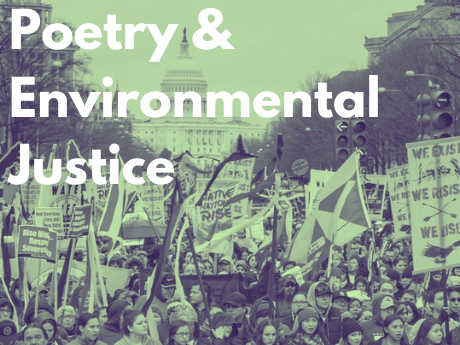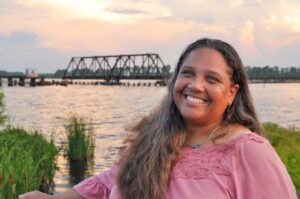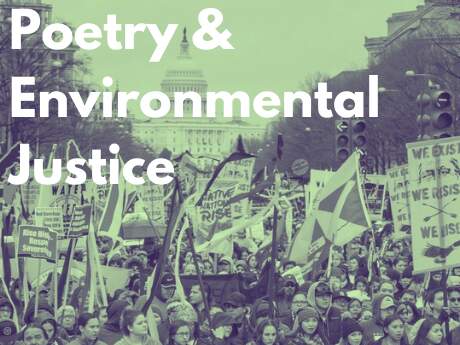Poetry & Environmental Justice
Amber Flora Thomas on “Whereas Statements” by Layli Long Soldier

from Whereas Statements
WHEREAS when offered an apology I watch each movement the shoulders
high or folding, tilt of the head both eyes down or straight through
me, I listen for cracks in knuckles or in the word choice, what is it
that I want? To feel and mind you I feel from the senses—I read
each muscle, I ask the strength of the gesture to move like a poem.
Expectation’s a terse arm-fold, a failing noun-thing
I scold myself in the mirror for holding.
Because I learn from young poets. One sends me new work spotted
with salt crystals she metaphors as her tears. I feel her phrases,
“I say,” and “Understand me,” and “I wonder.”
Pages are cavernous places, white at entrance, black in absorption.
Echo.
If I’m transformed by language, I am often
crouched in footnote or blazing in title.
Where in the body do I begin;
Layli Long Soldier, [“Whereas when offered...”] from Whereas. Copyright © 2017 by Layli Long Soldier. Reprinted with the permission of The Permissions Company, LLC on behalf of Graywolf Press, Minneapolis, Minnesota, www.graywolfpress.org.
Speaking the Apology: A Look at Layli Long Soldier’s “Whereas Statements”
As a biracial African American woman, I have stopped bracing for the horrible event that will finally shake enough Americans to their core to cause real change. Not because we haven’t experienced these events at an exhausting pace in recent years, but because a large portion of the population continues to ignore, deny, or forget the horrors. We quake in the fissures of ignorance and fear, almost to the point where forgiveness is an impossibility.
My struggle with forgiveness brings me to the first poem in Layli Long Soldier’s long series, “Whereas Statements,” which appears in her book, Whereas, a confronting of the broken treaties between the U.S. government and Dakota people that led to the Sioux Uprising, as well as the genocide of many indigenous people. Like a lot of marginalized people in America we don’t know where the apology will come from, or what it will change when it finally arrives, but we think about it often. Long Soldier throughout this book offers solace and hope that the way forward is in fact through an experience of apology.
In this poem, we find the poet bracing for apology. As one practiced in recognizing the false apology, the speaker knows that an apologizer must speak the words of apology to the harmed person. “Whereas Statements” is a response to the Congressional Resolution of Apology to Native Americans which President Barack Obama signed in 2009, but never delivered directly to tribal leaders or representatives.
The act of speaking the apology in this poem allows the receiver to “feel” its power and judge its sincerity at many levels, especially in the apologizer’s body language while he unburdens. The poet/speaker functions as both the receiver of the apology and the one who offers it. While the poet watches how the apology changes a person’s body, the exchange thrusts her toward feeling and words, as she prays for “the strength of the gesture to move like a poem.” The unfamiliar experience of apology throws her into unnatural posture as she scolds herself before a mirror.
Apology is material from the body as shown in the “salt crystals” of the young poet’s tears. The poem carries representational meaning, as “pages are cavernous places” where language is abstracted: “white at entrance, black in absorption.” The poem is an “echo” and influences can distort the meaning. Yet another reason why the verbalization of an apology is the only avenue into healing.
The poem presents the physical sensation of hearing the words and witnessing the words invade the apologizer’s body, rather than the language of apology. The poet propositions herself with a challenge in the final line of the poem: “[w]here in the body do I begin;” –to receive apology and give apology.
Long Soldier gives us hope in this poem that an apology when addressed verbally to the wronged party will be transformative, igniting in the receiver an opportunity for renewal. Environmental injustice is rooted in the perpetual wounds of slavery and genocide. We will keep circling the resulting harm from basic American evils until this eye-to-eye, spoken apology occurs.




